第31章
Wherever the real demand for commodities imported into Asiatic countries does not answer the supposed demand which in most instances is calculated on such superficial data as the extent of the new market, the magnitude of its population, and the vent foreign wares used to find at some outstanding seaports -- commercial men, in their eagerness at securing a larger area of exchange, are too prone to account for their disappointment by the circumstance that artificial arrangements, invented by barbarian Governments, stand in their way, and may, consequently, be cleared away by main force. This very delusion has, in our epoch, converted the British merchant, for instance, into the reckless supporter of every Minister who, by piratical aggressions, promises to extort a treaty of commerce from the barbarian. Thus the artificial obstacles foreign commerce was supposed to encounter on the part of the Chinese authorities, formed, in fact, the great pretext which, in the eyes of the mercantile world, justified every outrage committed on the Celestial Empire. The valuable information contained in Lord Elgin's Blue Book will, with every unprejudiced mind, go far to dispel such dangerous delusions.
The Blue Book contains a report, dated in 1852, of Mr. Mitchell, a British agent at Canton, to Sir George Bonham, from which we quote the following passage:
"Our Commercial Treaty with this country (China) has now (1852)been nearly ten years in full work, every presumed impediment has been removed, one thousand miles of new coast have been opened up to us, and four new marts established at the very thresholds of the producing districts, and at the best possible points upon the seaboard. And yet, what is the result as far as the promised increase in the consumption of our manufactures is concerned?
Why, plainly this: That at the end of ten years the tables of the Board of Trade show us that Sir Henry Pottinger found a larger trade in existence when he signed the Supplementary Treaty in 1843than his Treaty itself shows us at the end of 1850! -- that is to say, as far as our home manufactures are concerned, which is the sole question we are now considering."Mr. Mitchell admits that the trade between India and China, consisting almost exclusively in an exchange of silver for opium, has been greatly developed since the treat), of 1842, but, even in regard to this trade, he adds:
"It developed itself in as fast a ratio, from 1834 to 1844, as it has done from the latter date to the present, which latter period may be taken as its working under the supposed protection of the Treaty; while, on the other hand, we have the great fact staring us in the face, in the Tables of the Board of Trade, that the export of our manufacturing stuffs to China was less by nearly three-quarters of a million sterling at the close of 1850 than it was at the close of 1844."That the treaty Of 1842 had no influence at all in fostering the British export trade to China will be seen from the following tabular statement:
DECLARED VALUE IN POUNDS STERLING
1849 1850 1851 1852 1853Cotton Goods 1,001,283 1,020,915 1,598,829 1,905,321 1,408,439Woollen Goods370,878 404,797 373,399 434,616 203,875Other articles 164,948 148,433 189,040 163,662 137,289----------------------------------------------------------------Total 1,537,109 1,574,145 2,161,268 2,503,599 1,749,5971854 1855 1856 1857
Cotton Goods 640,820 883,985 1,544,235 1,731,909Woollen Goods156,959 134,070 268,642 286,852Other articles 202,937 259,889 403,246 431,221------------------------------------------------------Total 1,000,716 1,277,944 2,216,123 2,449,982Now, comparing these figures with the Chinese demand for British manufactures in 1843, stated by Mr. Mitchell to have amounted to ?,750,000, it will be seen that in five out of the last nine years the British exports fell far below the level of 1843, and in 1854 were only 10-17 of what they had been in 1843. Mr. Mitchell, in the first instance, explains this startling fact by some reasons which appear too general to prove anything in particular. He says:
"The habits of the Chinese are so thrifty, and so hereditary, that they wear just what their fathers wore before them; that is to say, just enough and no more of anything, no matter how cheap it may be offered them. No working Chinaman can afford to put on a new coat which shall not last him at least three years and stand the wear and tear of the roughest drudgery during that period.
Now, a garment of that description must contain at least three times the weight of raw cotton which we put into the heaviest goods we import to China; that is to say, it must be three times as heavy as the heaviest drills and domestics we can afford to send out here."Absence of wants, and predilection for hereditary models of, dress, are obstacles which civilized commerce has to encounter in all new markets.
As to the thickness and strength ofdrills, might British and American manufacturers not adapt their wares to the peculiar requirements of the Chinese? But here, we come to the real point at issue. In 1844, Mr.
Mitchell sent some samples of the native cloth of every quality to England, with the prices specified. His correspondents assured him that they could not produce it in Manchester, and much iess ship it to China, at the rates quoted. Whence this inability in the most advanced factory system of the world to undersell cloth woven by hand in the most primitive looms? The combination we have already pointed to, of minute agriculture with domestic industry, solves the riddle. We quote again from Mr. Mitchell: